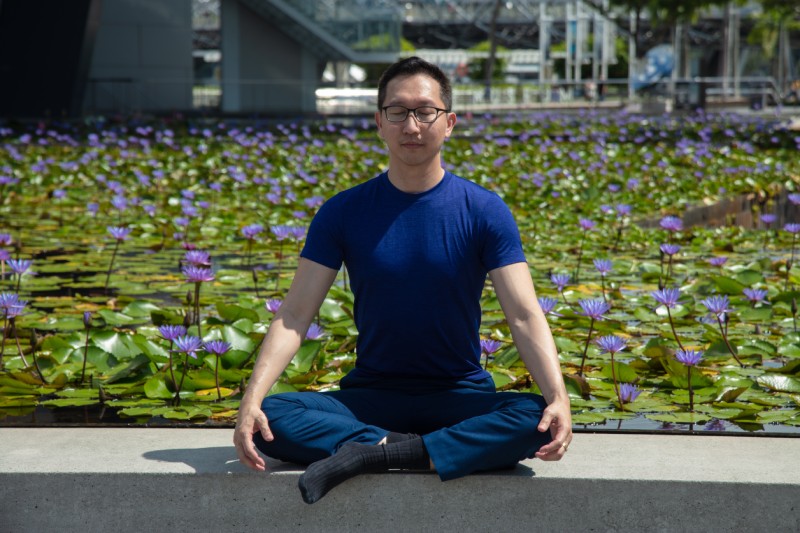Introduction
In today’s fast-paced world, feelings of fear, anxiety, stress, and insecurity are more prevalent than ever. Feelings of anxiety, fear, stress, and insecurity are not just occasional disturbances but sometimes constant companions.
These emotions can manifest physically as sleepless nights, shaking hands, cold sweats, physical discomfort and a pervasive sense of unease. While it's easy to feel overwhelmed and controlled by these feelings, it's crucial to remember that we hold the power to either master these emotions or let them control us.
With the right strategies, it is possible to reclaim your mental peace and lead a more fulfilling life.
Recognizing the Power Within
Before we delve into the solutions, it’s crucial to understand that fear, anxiety, stress, and insecurity are natural human responses to perceived threats and challenges. They are part of our evolutionary makeup,designed to protect us.
In modern society, these feelings are often triggered by situations that are not life-threatening, but rather psychologically demanding.
"You have a choice!"
It might sound overly simplistic, especially when you're in the midst of turmoil, experiencing what feels like a never-ending rollercoaster of negative emotions that spiral into mild depression.
Here are some ways that can help you regain control.
Seven Proven Ways to Overcome Your Inner Turmoil
1. Mindfulness and Meditation

Mindfulness meditation has been scientifically proven to reduce symptoms of anxiety and stress. By focusing on the present moment and observing your thoughts and feelings without judgment, you can gain a clearer perspective on your anxieties.
How to Practice:
- Dedicate a few minutes each day to sit quietly and focus on your breathing.
- Observe your thoughts as they come and go, without engaging with them emotionally.
- Use guided meditation apps like Headspace or Calm to help you establish a routine.
2. Cognitive Behavioral Therapy (CBT)
CBT is a highly effective psychological treatment for anxiety, stress, and related disorders. It works by changing negative thought patterns that contribute to your emotional distress.
How to Engage with CBT:
- Seek a qualified therapist who specializes in CBT.
- Work on identifying and challenging your negative thoughts.
- Practice the strategies learned in therapy during your daily interactions and challenges.
3. Physical Activity

Regular physical exercise is not just good for the body but also for the mind. Exercise releases endorphins, which are chemicals in the brain that act as natural painkillers and mood elevators.
Tips for Incorporating Exercise:
- Aim for at least 30 minutes of moderate-intensity exercise, such as brisk walking or cycling, most days of the week.
- Find activities that you enjoy, which makes it more likely that you'll stick with them.
- Consider yoga and Tai Chi, which include elements of meditation and breathing that help reduce anxiety.
4. Balanced Diet and Sleep
Never underestimate the power of a balanced diet and good sleep hygiene on your mental health. Both can have profound effects on your stress levels and emotional well-being.
Diet and Sleep Tips:
- Reduce caffeine and sugar intake, which can exacerbate anxiety and lead to disturbances in your sleep cycle.
- Ensure your diet includes plenty of omega-3 fatty acids, antioxidants, and vitamins.
- Establish a regular sleep schedule, and create a bedtime routine that signals to your body it’s time to wind down.
5. Journaling
Writing down your thoughts and feelings can provide an outlet for expressing what’s on your mind and reduce anxiety. Recommended to do it first thing in the morning.
Journaling Techniques:
- Keep a daily log of your thoughts, feelings, and concerns.
- Reflect on the situations that cause you stress and describe how they affect you physically and emotionally.
- Use your journal to brainstorm solutions to the challenges you face or to plan future steps.
6. Building a Support Network

Having a strong support network can help buffer you from the effects of stress and anxiety.
Building Your Network:
- Reach out to friends and family who understand what you’re going through.
- Join support groups where you can connect with others facing similar challenges.
- Consider online forums or communities related to your specific fears and anxieties.
7. Professional Help
Sometimes, the best way to handle your anxiety is to seek professional help. Psychologists, psychiatrists, and therapists can offer strategies and treatments that might be difficult to manage on your own.
You may consider having a coach, a trusted person for personal guidance especially when you’re feeling vulnerable which can be daunting. A coach can provide tailored support and actionable strategies to tackle your issues, act as a mirror, reflecting your hidden strengths and blind spots, and help you navigate through your emotional challenges.
Choosing the right coach is crucial. They should not only have the necessary experience and empathy to understand your situation but also genuinely care about your growth and success.
Seeking Professional Guidance:
- Don’t hesitate to seek help if your anxiety interferes with your daily life.
- A professional can offer personalized therapy, which might include medication or specialized counseling.
- Remember, seeking help is a sign of strength, not weakness.
Conclusion
Overcoming fear, anxiety, stress, and insecurity is not about eliminating these feelings entirely; rather, it's about managing them effectively so they don't control your life.
It is no small feat. It requires courage to confront these deep-seated emotions and persistence to implement changes. By employing these strategies, you can start to regain control and make meaningful progress towards a calmer, more secure life.
The journey of overcoming these emotions is continuous and evolving. Each step you take, no matter how small, is a step towards regaining your peace and happiness.
Remember, each person’s journey is unique, and what works for one might not work for another. It’s important to try different approaches and find what best suits your individual needs.
Engaging with a community can provide additional support and insight as you work through your challenges.













